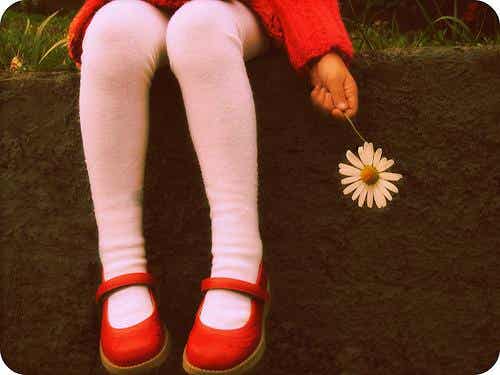
Last update: February 08, 2015
Many of us know families in which dialogue and respect practically do not exist or perhaps we ourselves are part of a family group with these characteristics. In these cases, for example, family members communicate with each other by yelling at each other, using abusive terms, without showing tolerance or attention when it is time to listen to the opinions of others..
All these are characteristics that people who share an environment full of tension, contempt, misunderstanding, etc. have in common. In other words, an environment in which emotions are not managed efficiently.
Inner balance
“Managing emotions” has to do with the ability to understand them, accept them and grasp the sense of what they transmit to us. In this way, emotions represent a help and not a conflict or an obstacle when it comes to reaching goals in life.
A person with emotional intelligence is capable of maintaining balance and control in any situation. We are not saying that emotions are negative, it is normal to get angry at times, but it is the way we react to events that determines whether we really have control over ourselves or not.
Managing communication with the right tone and putting yourself in the interlocutor's shoes are aspects to keep in mind if you want to show your emotional intelligence. If we understand others and feel in harmony with ourselves, when the "provocations" of the outside world arrive, they will not necessarily turn into something we may not be able to handle..
Skills that are learned
Nobody doubts that the role of parents in raising children is fundamental. Parents are the first to introduce us to the world after we open our eyes for the first time, those who guide us in the process of life in which we learn to perceive everything around us through the senses and our faculties..
All adults should be able to develop emotional intelligence that sets an example in the family unit and allows children to grow healthily and develop their skills on their own. Stimulation and discretion during the first phase of life will result in a healthy future physically, psychologically and emotionally.
How emotional intelligence is expressed in children
This all depends on the age of the children, of course, but in general we can say that there are certain "signs" that could indicate that the child has developed or is developing his emotional intelligence in a healthy way. Below we present some examples of the behavior of children who have been "guided" in the development of their emotional intelligence:
• They tend to relate spontaneously and positively with people of any age.
• Their bodily expression reflects happiness and enthusiasm.
• They are more willing to "listen" and consider options or opinions different from their own.
• They express their feelings and express affection naturally and spontaneously.
• They show respect for the wishes and feelings of their fellowmen.
• They are able to "manage" their impulsiveness better.
• They can solve problem situations quite easily (of course, always and when they are within their reach).
• They are able to express and share ideas, they also dare to disagree, always with respect, when they disagree with something or someone.
It is necessary to clarify that every child is different, has its own characteristics, but if you observe some of these attitudes in your children, then you can be happy and continue to educate them as you have done until now because the attitudes we have mentioned are signs of emotional intelligence. . If not, perhaps the time has come to review some aspects of your family unit, in fact some dynamics or constraints could compromise certain areas of the emotional side of your children..
What is the role of parents?
If you feel that you have not done the right thing as a father or mother, it is important that you do not condemn yourself. We all make mistakes and it is equally true that we can always learn from them and improve. Thanks to recognition and interest, we can do well and reap the rewards of our efforts.
We advise you to start communicating in a healthy way, arming yourself with patience and willpower to achieve greater closeness and harmony with your family members. Keep in mind that changes can be difficult at first and if great difficulties arise in the family and are too complicated to manage, we recommend that you consult a therapist who specializes in this area..
Children have the right to grow up in a family where understanding reigns and tools such as emotional intelligence are used to deal with any situation that arises in life, however complicated it may be, and for everyone to be happy.. Be aware of this, if you want a better future for your children, then it is time to get busy.
Image courtesy of Lubs Mary.


























